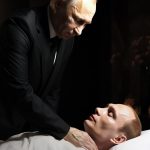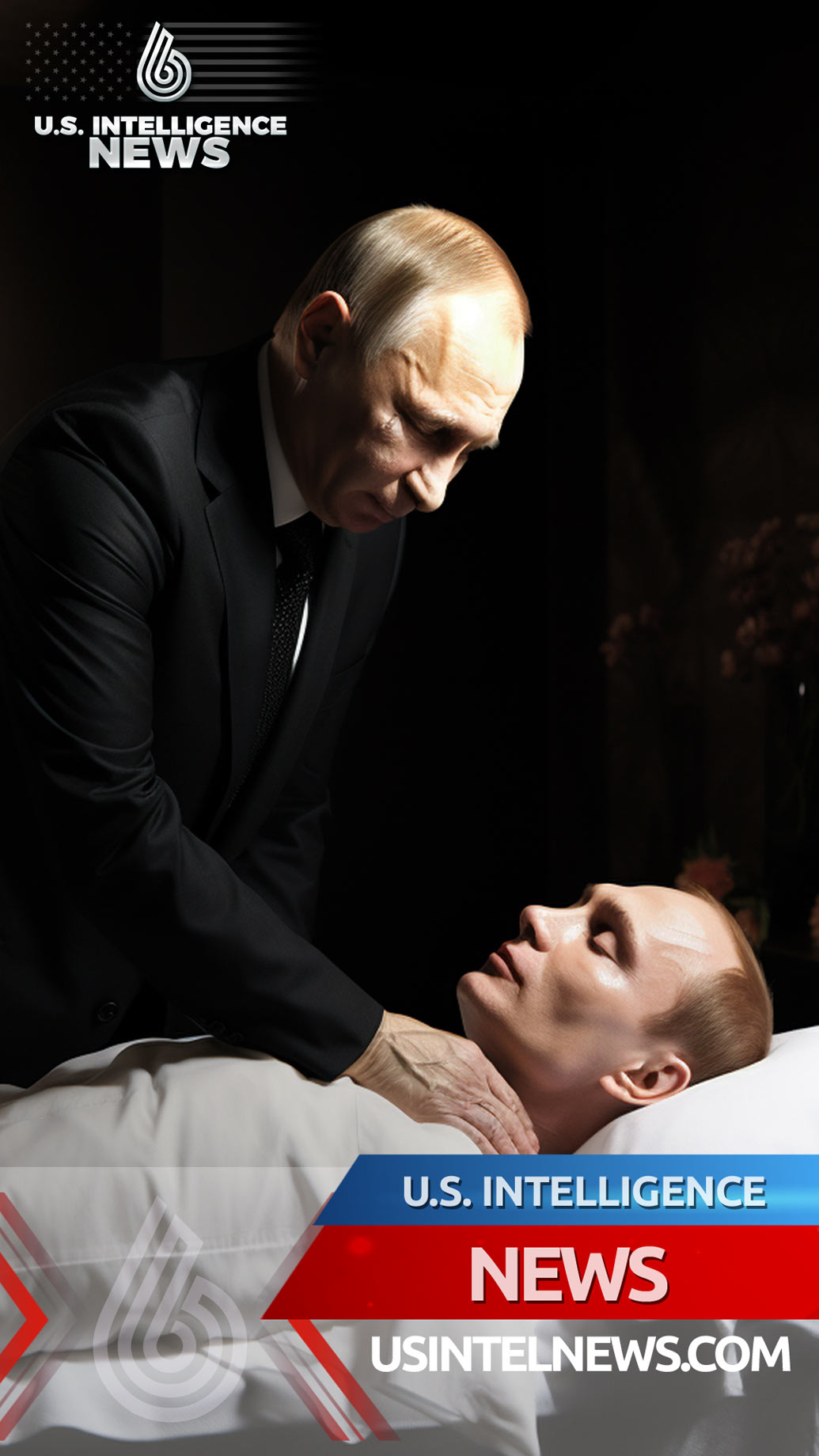
The U.S. Intelligence Community
South Court Auditorium
12:45 P.M. EDT
THE FIRST LADY: Thank you. (Laughs.) Hello, NEA.
Hi, Becky. How are you? And how’s this year’s RA going?
MS. PRINGLE: Well, you know, there’s nothing better I want to do than spend the Fourth of July with almost 7,000 of my closest friends. It doesn’t get better than that, Jill!
THE FIRST LADY: (Laughs.)
MS. PRINGLE: It just doesn’t. Wow.
THE FIRST LADY: You know, Becky, I was listening to all of the questions and comments that the educators were making, and I have to say, I think I beat them all; I’ve just signed my new contract, and I think this is year 39 for me as a teacher. (Applause.)
MS. PRINGLE: So that’s fabulous. So, speaking of that, Dr. Biden, how do you, as an educator, use your summer — now, you don’t really get — nobody gets a summer off, right? But, you know, as you end one term and you start the — the next, how do you recharge yourself and prepare for that school year ahead?
THE FIRST LADY: Well, I think like a lot of the members there, you know, I do some work, you know, during the summer and — of course I have that other job that you know about. You know, but I always try to take a week or two to relax.
MS. PRINGLE: Yeah, just doing that other job, too, Jill. Yeah.
THE FIRST LADY: (Laughs.) So I catch up on the books that I’ve been wanting to read. You know, and I’m an English teacher, so, you know, I’m reading everything I can get my hands on. So, if you have any good suggestions, will you just text them to me?
MS. PRINGLE: (Laughs.) We absolutely will.
THE FIRST LADY: Okay. Because I’m —
MS. PRINGLE: We’re on it.
THE FIRST LADY: — always looking for some good books. And, you know, I go to the beach; I’ll be going tomorrow. And I like to, you know, go for some bike rides and some walks.
But, you know, even though I try not to think about the fall, I’m always thinking about how I can change my curriculum and — and already I ha- — I’ve been reading the papers, looking for articles that I want my students to write about. So I think I’m very much — you know, we’re all the same.
You know, I think that now, you know, it’s about — we’re almost — I — I hate it when people say July 4th, “Well, the summer is half over.” You know, I hate to hear that because it’s just like it’s going so quickly.
But I know that we don’t have much time left. So, you know, there’s sort of a mix of sadness — right? — that the summer is going by so quickly, but I always look forward to the year ahead and I’m always — you know, I’m already checking my rolls to see if my classes are full.
So — but it’s good to join a group of people that know exactly how I feel: all of my fellow NEA members.
And, you know, I knew that Joe would always be the education president, because he knows that our nation’s — you know, the success of our nation starts with you, the educators who shape our students’ lives.
And so, you know, we’ve invested so much in our schools and our counselors and our nurses and administrators who make them all successful.
And as he transforms, you know, our economy, creating millions of jobs that are shaping the future, he knows that education is key to filling those critical roles.
And I want you to know that he hears you. You know, when I was listening, I — the things that I heard about — the gun control, the — you know, keeping our students safe, mental health in our schools, pay — the Biden-Harris administration is listening and we hear you.
And we know that, you know, for most people, a high school diploma alone isn’t enough to find a great career, but that doesn’t mean that the only pathway to success is a four-year college degree. (Applause.)
And as First Lady, you know, I’ve travelled this country, and I’ve met so many amazing educators who are helping students explore and find their passions.
Starting in middle and high school, they’re creating opportunities to learn about computers and electric vehicles and wind turbines. You know, this is the future.
They’re helping young people find Registered Apprenticeships and dual enrollment programs, which means they start in high school and, even younger, middle school, and they start thinking about their careers and how they’re going to get into those careers.
That’s the Biden education pathway. And it starts with free, high-quality universal — totally — preschool and creates a kindergarten through — (applause) — twelfth-grade experience that prepares our students for their next steps.
And it sup- — it supports apprenticeships and provides two years of affordable community college, with avenues for students who decide, “You know, maybe I want to go to a four-year college, or maybe I don’t.” But this is the future of our workforce — a future that all of you make possible.
And together, through the Biden education pathway, we can fundamentally transform what it means to make a living and make a life here in America.
And now, I’d like to introduce the man who will never stop fighting for you, who knows how important teachers and unions are to our students and to our country, my husband, the education president, Joe Biden. (Applause.)
THE PRESIDENT: Happy Fourth of July. I’m Joe Biden. I am Jill Biden’s husband.
Folks, let me start by saying educators have champions in the White House.
Jill reminds me — and I mean this sincerely — all the time, teaching is not just what you all do, it’s who you are. It’s who you are. And I know the last few years have been incredibly difficult. We ask so much of you. And I want you to know I see you, we see you, we thank you. And we thank you, Becky, for your leadership.
You know, I’ve often say — and you’re tired of hearing me saying it, probably, but — children are the kite strings — they’re not somebody else’s chi- — they’re all our children — are the kite strings that lift our national ambitions aloft, and you hold those strings. You hold those strings. And our job is to make sure you have what you need to do what you do best.
That’s why, through the American Rescue Plan, we delivered critical support for schools, including funding for after-school programs, summer programs, hiring more teachers, counselors, school psychologists.
Folks, in fact, more than 80 percent of school superintendents say they’re using those funds of the American Rescue Plan to help students recover academically and to address mental health crisis facing so many of our young people as a consequence of the pandemic.
We’re going to be talking about the pandemic — our — our — those who succeed us — for a long time. It had profound impact, and it had negative impacts. And we’re — we’re working like hell to make it o- — to overcome it.
Compared with before the pandemic, the number of school nurses is now up 22 percent, the number of school social workers is up 43 percent. (Applause.) But we’re just getting started.
You know, we expect teachers to solve every problem — every problem.
We need to provide access to preschool for 3- and 4-year-olds so they get to classroom ready to learn. (Applause.)
And, by the way, recent studies have indicated that if you start school — not — not — not days- — daycare, school — at three years old, no matter what your background is, no matter what home you come from, you have an incredible opportunity.
You all know all the st- — all the data and statistics: that a kid going from a broken home and a tough circumstance is going to hear a million fewer words spoken by the time they get to first grade, or they’re going to find themselves in a situation where they are — their vocabulary is considerably less.
Since I took office, we’ve added 100,000 public school teachers, and we’re going to continue working to address the teacher shortage. (Applause.) It’s critical. It’s critical.
No, really. This is a national security issue.
It starts with paying teachers and educators what they’re worth. We’re making it easier for teachers to — (applause) — you got it, kid. That’s why I know how to say, “Not labor, but unions. Unions.” (Applause.)
We’re making it easier for teachers to enter the field in the first place, which is why we’re already helped nearly 20 states put in place Registered Apprenticeship programs.
These programs give aspiring teachers the chance to train under experienced teachers, like all of you, while earning a paycheck and not having to take on more student debt.
Another thing we can do — (applause) — is — to help with the educator shortage is to reduce the burden teachers face paying back their loans.
When I came to office, there was a program called the Public Loan Service [Loan] Forgiveness program. It was a total mess.
And this was designed, if you’d engage in public service, you can get your debt forgiven for education.
We forgave more student loans to teachers — we had to — they had to be engaged in public service — not just teachers, but social workers and others, police officers, et cetera. But the program was too complicated, too difficult to take advantage of. But Jill and I were determined to fix it, and we have.
Since I’ve been in office, there are now more than 615,000 teachers, nurses, police officers, and others, who have been able to get as much as — loans in that $42 billion forgiven so far. $42 billion. (Applause.)
And, by the way, the program is still there. Go to — anyway, you ought to contact us to make sure you know exactly how to qualify, because you deserve that forgiveness.
Finally, as you know all too well, educators now find themselves on the front lines of gun violence. All your — some of your members talked about it, Jill talked about.
With your help, we passed the most significant bipartisan gun safety legislation in 30 years, but it’s not nearly enough.
I was one of those guys, early on, when I was a senator, who helped pass the Assault Weapons Ban. And we had only — we could only get it for 10 years, and one of the Republican administrations got rid of it.
But Congress needs to step up, pass commonsense gun safety laws to protect our kids and educators. (Applause.)
And, by the way, arming teachers is not the answer. (Applause.) Arming teachers is not the answer. (Applause.) Banning assault weapons and high-capacity magazines, extensive background checks — they’re part of the answer. They’ll make a big difference.
And one more thing: Let’s stand with teachers and educators
against politicians who are trying to score political points by banning books. (Applause.)
Did you all ever think you’d be in a situation, in the United States of America, we’re talking about banning books? And the people deciding who to b- — what books to ban? Come on. That’s not who we are. (Applause.)
Let me close with this. So many of us are here, at least in part, because somewhere along the way an educator believed in us, helped us believe in ourselves.
I know that was the case for me in grade school, high school, and in college. I used to stutter very badly. I had teachers in grade school and then in high school who convinced me it couldn’t define me, I wouldn’t let it define me. And they helped me.
I had a professor at the University of Delaware who became one of my great — he’s the reason I ran. I didn’t think I could. I didn’t think I should. And he’d talk — he said, “Remember what Plato said, Joe?” I’m trying to think, “What the hell did Plato say?”
But what he said was — (laughter) — to paraphrase him, he said, “The penalty good people pay for not being involved in politics is being governed by people worse themselves. Run, Joe. Run.”
That’s the power of a great educator. (Applause.) No, I really mean it. Think about — all of you have somebody — somebody in your education who was just there for you, gave you confidence.
We owe our nation’s educators so much. And I’m here to say, we have your back. We’re committed to supporting all of you, just like you support the nation’s future and our children. (Applause.)
Folks, this Independence Day, we should be more optimistic than ever. We have to remember who we are. We’re the United States of America. We have never, never failed to accomplish a goal we set out to accomplish when we’ve done it together.
There’s nothing — nothing beyond our capacity when we do it together. We’ve come out of every crisis — unlike any other nation in the world today, we’ve come out of every crisis we’ve faced at le- — in the past 247 years stronger than we entered that crisis.
We’re doing it again.
I’ve never been more optimistic than I am today. I really mean it. Never been more optimistic. There’s so much we can do. We’re on the edge. And the American people are figuring out what the other team is talking about, and they don’t like it.
So, folks, happy Fourth of July. Thank you, thank you, thank you for everything you do.
May God bless you all. And may God bless our nation’s educators.
Thank you, thank you, thank you. (Applause.)
12:59 P.M. EDT
The post Remarks by President<span class="dewidow"> </span>Biden and First Lady Jill<span class="dewidow"> </span>Biden at the 2023 National Education Association Annual<span class="dewidow"> </span>Meeting appeared first on The White House.


 Russia’s Dark Power Struggle: Putin’s Corrupt Empire Teeters on the Edge
Russia’s Dark Power Struggle: Putin’s Corrupt Empire Teeters on the Edge  Bitcoin vs. Ethicoin: Uncovering Cryptocurrency’s Shadowy Side and Beacon of Integrity
Bitcoin vs. Ethicoin: Uncovering Cryptocurrency’s Shadowy Side and Beacon of Integrity  Elon Musk’s Shadowy Alliance with Vladimir Putin: A National Security Threat
Elon Musk’s Shadowy Alliance with Vladimir Putin: A National Security Threat  The Unconventional Diplomatic Dynamics Shaping Global Relations: Trump, Musk, and Covert Negotiations
The Unconventional Diplomatic Dynamics Shaping Global Relations: Trump, Musk, and Covert Negotiations 


